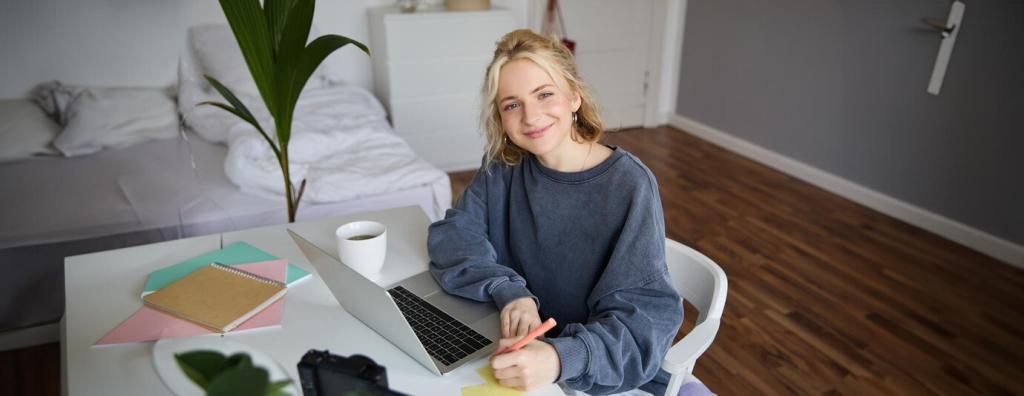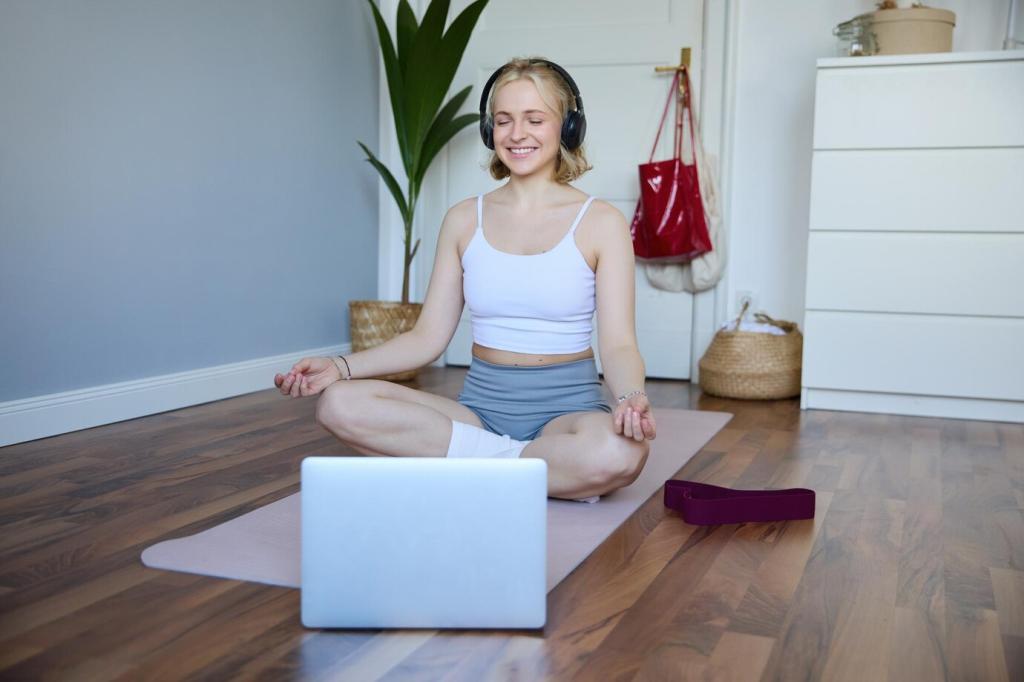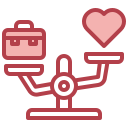Self-Care Strategies for Remote Workers: Build a Sustainable Workday
Today’s chosen theme: Self-Care Strategies for Remote Workers. Create a humane, energizing routine that supports focus, health, and joy while working from home. Read on, try one idea today, and subscribe for weekly, practical inspiration.
Design a Wellbeing-First Workspace
Position your screen at eye level, keep wrists neutral, and sit back in your chair to let the backrest carry you. Use natural light when possible, and add a warm lamp to soften glare and reduce strain.

Design a Wellbeing-First Workspace
Begin with a two-minute desk reset: water bottle filled, notepad open, window cracked for air. This small ritual sends a reliable signal—work begins with care, not chaos, strengthening focus and calm.


Boundaries That Protect Your Energy
Set a daily start ritual, a real lunch break, and a firm shutdown. Name them on your calendar to make them visible. Most people keep boundaries better when they are scheduled like meetings.
Boundaries That Protect Your Energy
Use status notes that state response windows, not apologies. For example, “Heads down until 2 PM, will reply after.” Clear expectations reduce stress and prevent the creeping guilt that drives after-hours work.
Move More, Hurt Less
Every 30–45 minutes, stand, roll shoulders, and look 20 feet away for 20 seconds to ease eye strain. Short, frequent resets often beat long, infrequent breaks for maintaining steady energy.
Move More, Hurt Less
Try a 3-minute circuit: neck nods, thoracic twists, hip openers, and calf raises. Keep a sticky note with moves on your monitor. Small, repeatable routines build momentum without requiring gym-level motivation.


Fuel and Hydration for Focus

Pair protein, fiber, and healthy fats—like yogurt with seeds and berries, or hummus with veggies and whole-grain crackers. Balanced snacks support attention better than pastries that crash your focus mid-afternoon.
Mindfulness, Connection, and Kindness
01
Three Minutes to Reset
Close your eyes and count twelve slow breaths, shoulders dropping with each exhale. If thoughts wander, gently return to breath. This tiny practice often restores clarity faster than endless tab-hopping.
02
Combat Isolation with Intentional Connection
Schedule a five-minute non-work chat after your daily standup. Celebrate small wins, ask one real question, and listen. Social microdoses nourish belonging when home offices feel quiet and overly efficient.
03
Practice Self-Kind Talk
Replace harsh self-critique with coaching language: “What’s the next helpful step?” Many readers say this shift reduces procrastination and frees energy. Share a kind sentence you’ll try during your next tough task.
Digital Hygiene for Deep Work and Real Rest
Tame Notifications, Guard Attention
Silence non-essential pings, batch messages, and use focus modes during priority blocks. Attention fragments cost cognitive energy; a quiet digital environment is self-care for your future self’s workload.
Design a Shutdown Ritual
End the day by closing loops: list tomorrow’s top three, tidy your desk, and sign out of work apps. This simple ritual teaches your brain that off-hours are truly off-hours.
Evening Screen Discipline
Reduce blue light and avoid doom-scrolling after dinner. A book, stretch, or short walk helps calm the mind before sleep. Comment with one nighttime habit you’ll swap to support real recovery.
